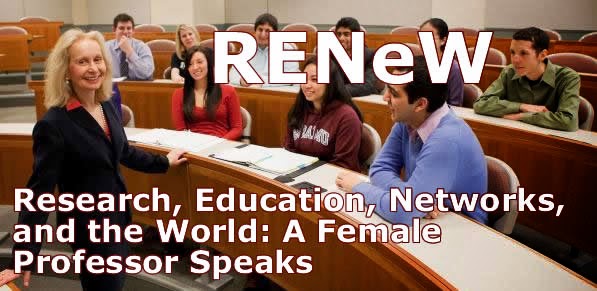Recently, we have been devoting a lot of time to investigating information asymmetry, whether from a quality perspective, a time perspective, or a sustainability one.
Information matters and is crucial to good decision-making and, even in a world dominated by the Internet, with many experiencing information overload, obtaining the right information at the right time may not be attainable.
Having incomplete information can also lead to bad decisions and losses in investments.
Coincidentally, in a recent Financial Times OpEd, dated May 20, 2014, the former mayor of NYC, who needs no introduction whatsoever, Michael Bloomberg, and Mary Schapiro, the former chair of the US Securities and Exchange Commission, write on precisely this issue. Their OpEd, "Give investors access to all the information they need," is a MUST read! They begin their eloquent and extremely timely OpEd with the statement: The most valuable currency in financial markets is reliable information. They note that in a 2014 study it was found that 2/3 of global investors evaluate non-financial disclosures. However, only half of this group uses a structured process to make their assessments. They emphasize the importance of climate risk, quality issues, as in adulterated pharmaceutical products, and even data security issues and financial fraud. They note the organization established in 2011 that they serve as chair and co-chair of, respectively, the Sustainability Accounting Standards Board, that is working with US-listed companies and investors to establish industry-specific measurement and reporting standards on non-financial data.
Transparency matters and can assist in both competitiveness and resiliency. And, clearly, Bloomberg speaks from a wealth of know-how and practical experience - just remember the impact of SuperStorm Sandy on NYC and surrounding areas!
As for our research in this domain, I am very pleased to note that our paper, Equilibria and Dynamics of Supply Chain Network Competition with Information Asymmetry in Quality and Minimum Quality Standards, Anna Nagurney and Dong Li, has now been accepted for publication in Computational Management. Science. The paper emphasizes the importance of uniform quality standards and is inspired, in part, by failures in the pharma industry, as well as other products, too long of a list to note all of them. I am obsessed by quality - from the air that we breathe, to the food that we eat, the water that we drink, and the products that our families use. If only producers know the quality of their goods and not consumers, we all lose!
In addition, we have co-authored a paper that focuses on information asymmetry in time and utilizes gane theory to evaluate supply chain network competition in both product flows and the average time of product deliveries. The paper is Supply Chain Network Competition in Time-Sensitive Markets, Anna Nagurney, Min Yu, Jonas Floden, and Ladimer S. Nagurney. We will be presenting this paper at two different conferences in Europe in June.
Finally, environmental sustainability is a theme that we have long been very passionate about and have written alot on (including books on sustainable transportation and environmental networks). Making environmental impact information available to consumers can greatly influence their purchasing decisions and the environment. Given that I spend a lot of time in Sweden where environmental sustainability is almost a "given," our paper, Fashion Supply Chain Network Competition with Ecolabelling, Anna Nagurney, Min Yu, and Jonas Floden, quantifies the gains from ecolabelling. In our model, consumers are provided with the information associated the GHG emissions or the equivalent in the supply chain of the products.
Thanks to Bloomberg and Schapiro for their terrific OpEd and, remember, it was the Nobel laureate Robert Akerlof, whose inspiring paper on quality information asymmetry and 'lemons,' which was rejected by different journals 3 times, helped to enlighten us as to the value of information as well as quality!
About Me
- Dr. Anna Nagurney
- Dr. Anna Nagurney is the Eugene M. Isenberg Chair in Integrative Studies at the Isenberg School of Management at the University of Massachusetts Amherst. She was appointed to this chaired professorship on April 14, 2021. Prior to this chaired professorship, since 1998, she was the John F. Smith Memorial Professor of Operations Management. She was a Visiting Fellow at All Souls College at Oxford University for the 2016 Trinity term. She was a Visiting Professor at the School of Business, Economics and Law at the University of Gothenburg in Sweden for 2012, 2013, 2014, and 2015. Her latest book is: Labor and Supply Chain Networks, published by Springer in 2023. Her other recent book, co-edited with I. Kotsireas, P.M. Pardalos, and A. Tsokas, is: Dynamics of Disasters: Impact, Risk, Resilience, and Solutions, and was published by Springer in 2021. She is also the co-author of the book: Competing on Supply Chain Quality: A Network Economics Perspective, with D. Li, and published in 2016. She is the Founding Director of the Virtual Center for Supernetworks, which she established in 2001.
Subscribe To RENeW


Recent Visitors
Blog Archive
-
▼
2014
(161)
-
▼
May
(15)
- Those Great Commencement Speeches
- Information Asymmetry vs. Transparency and Why It ...
- Revising, Reviewing, and Rewarding - The Three R's...
- Sustainability of Cities in Sweden with Gothenburg...
- Terrific Energy, Cities, and Complex Systems Works...
- Photos from 25th Annual POMS Conference in Atlanta
- Transportation Research Board of the National Acad...
- Such a Proud Academic Mom
- A Super Year for the Supernetwork Team
- Toward An Economy Plane for the Internet - A Parad...
- Bravo to Our Outstanding Doctoral Students at the ...
- Finance Superstars that are Changing Our World - C...
- A Collaboration of 3 Academic Generations on E-Cyc...
- GREAT UMass INFORMS Student Chapter Party with Sur...
- Supernetwork Center Associates to Present Supply C...
-
▼
May
(15)
















